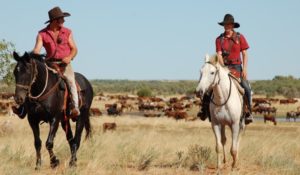In July 2016, the GGA welcomed the Kimberly Pilbara Cattleman’s Association (KPCA) to the network. Recognising the Alliance as an opportunity to expand their networks throughout WA, the newly incorporated KPCA also saw membership of the GGA as a way to create collaborative relationships with other grower groups and be part of a collective in sharing ideas and working together to achieve outcomes for the beef industry.
KPCA has been formally operating 12 months, after becoming an incorporated association following almost four years as a working group. The organisation now has a nine member Executive Committee and CEO, Catherine Marriott, to oversee operations.
The concept of KPCA was developed in response to producers in the Kimberly and Pilbara regions wanting to have a voice on the issues that matter to them, as there was nothing that sufficiently represented their particular needs in the industry. A group of producers came together with a vision to create change, lead innovation and drive outcomes in the region.
Some initial funding through the Northern Beef Futures (NBF) program and Rangelands NRM enabled the group to develop their mission of “maximising the production of the Northern Beef Industry through partnerships, effective communication and connecting those along the value chain”. With this statement to guide them, the KPCA was established in November 2015.
Since its inception, KPCA has tripled their membership base, now having over 50 members including pastoralists and stakeholders. These members represent a large number of the landholders in the Kimberly region and an increasing proportion in the Pilbara region.
The organisation undertook strategic planning in August 2016, a process which highlighted relevance, promotion, supply chain development, leadership and collaboration as their key strategy areas for the future. Some of the actions to achieve these strategies areas include:
•Starting conversations about industry issues and working with stakeholders to address these in the best way possible;
•Collaborating with stakeholders for RD&E delivery;
•Promotion through developing industry best practice for the region and creating a social licence framework;
•Developing and maintaining supply chain partnerships and working with producers to ensure quality and supply of produce;
•Implementing a leadership program for producers in the region.

